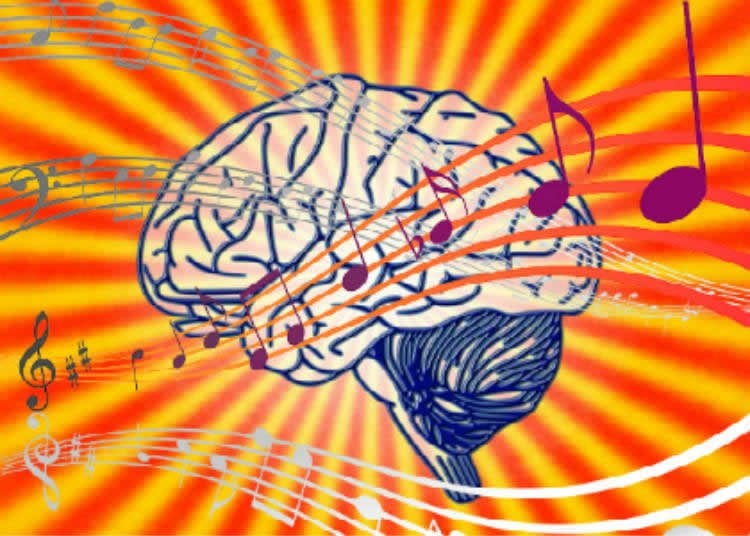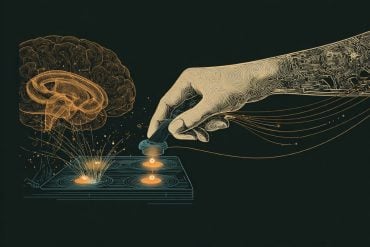Summary: According to researchers, meditation and listening to music may help to alter biomarkers associated with cellular aging and Alzheimer’s disease in adults experiencing memory loss.
Source: IOS Press.
A research team led by Dr. Kim Innes, a professor in the West Virginia University School of Public Health, has found that a simple meditation or music listening program may alter certain biomarkers of cellular aging and Alzheimer’s Disease in older adults who are experiencing memory loss. Study findings, reported in theJournal of Alzheimer’s Disease, also suggest these changes may be directly related to improvements in memory and cognition, sleep, mood, and quality of life.
Sixty older adults with subjective cognitive decline (SCD), a condition that may represent a preclinical stage of Alzheimer’s disease, participated in the randomized, clinical trial. While SCD has been linked to increased risk for dementia and associated with certain neuropathological changes implicated in Alzheimer’s disease development, including elevated brain levels of beta amyloid, this preclinical period may also provide a critical window for therapeutic intervention.
In this trial, each participant was randomly assigned to either a beginner meditation (Kirtan Kriya) or music listening program and asked to practice 12 minutes/day for 12 weeks. At baseline and 3 months, blood samples were collected. Two markers of cellular aging were measured: telomere length and telomerase activity. (Telomeres serve as protective caps on chromosomes; telomerase is an enzyme responsible for maintaining telomere length). Blood levels of specific beta-amyloid peptides commonly linked to Alzheimer’s Disease were also assessed. In addition, memory and cognitive function, stress, sleep, mood, and quality of life were measured. All participants were followed for a total of 6 months.
Following completion of the 3 month intervention period, the meditation group showed significantly greater increases in a key beta amyloid peptide (Aβ40) than did the music group. Rising beta amyloid levels were correlated with improvements in memory and cognitive function, as well as with those in mood, sleep, and quality of life at both 3 and 6 months; these positive associations were substantially more pronounced in the meditation group. Telomerase activity rose in both the meditation and music groups, although the increases were significant only among participants who had lower values at baseline (≤50th centile), and who practiced more frequently over the course of the intervention. Likewise, increases in telomere length were also significantly greater among participants with lower values at the beginning of the study. Increases in telomere length and telomerase activity were also correlated with improvements in certain cognitive and psychosocial outcomes.

In addition, both groups improved significantly in memory and cognitive function, as well as in sleep and psychological status, although improvements in stress, mood, and quality of life were substantially greater in the meditation group. These improvements were maintained or further strengthened at six months, three months after the intervention ended.
Source: IOS Press
Publisher: Organized by NeuroscienceNews.com.
Image Source: NeuroscienceNews.com image is in the public domain.
Original Research: Abstract for “Effects of Meditation and Music-Listening on Blood Biomarkers of Cellular Aging and Alzheimer’s Disease in Adults with Subjective Cognitive Decline: An Exploratory Randomized Clinical Trial” by Innes, Kim E.; Selfe, Terry Kit; Brundage, Kathleen; Montgomery, Caitlin; Wen, Sijin; Kandati, Sahiti; Bowles, Hannah; Khalsa, Dharma Singh; and Huysmans, Zenzi in Journal of Alzheimer’s Disease. Published November 9 2018.
doi:10.3233/JAD-180164
[cbtabs][cbtab title=”MLA”]IOS Press”Music and Meditation Alters Biomarkers of Alzheimer’s and Cellular Aging.” NeuroscienceNews. NeuroscienceNews, 12 November 2018.
<https://neurosciencenews.com/alzheimers-music-aging-10183/>.[/cbtab][cbtab title=”APA”]IOS Press(2018, November 12). Music and Meditation Alters Biomarkers of Alzheimer’s and Cellular Aging. NeuroscienceNews. Retrieved November 12, 2018 from https://neurosciencenews.com/alzheimers-music-aging-10183/[/cbtab][cbtab title=”Chicago”]IOS Press”Music and Meditation Alters Biomarkers of Alzheimer’s and Cellular Aging.” https://neurosciencenews.com/alzheimers-music-aging-10183/ (accessed November 12, 2018).[/cbtab][/cbtabs]
Abstract
Effects of Meditation and Music-Listening on Blood Biomarkers of Cellular Aging and Alzheimer’s Disease in Adults with Subjective Cognitive Decline: An Exploratory Randomized Clinical Trial
Background:
Telomere length (TL), telomerase activity (TA), and plasma amyloid-β (Aβ) levels have emerged as possible predictors of cognitive decline and dementia.
Objective:
To assess the: 1) effects of two 12-week relaxation programs on TL, TA, and Aβ levels in adults with subjective cognitive decline; and 2) relationship of biomarker changes to those in cognitive function, psychosocial status, and quality of life (QOL).
Methods:
Participants were randomized to a 12-week Kirtan Kriya meditation (KK) or music listening (ML) program and asked to practice 12 minutes/day. Plasma Aβ(38/40/42) and peripheral blood mononuclear cell TL and TA were measured at baseline and 3 months; cognition, stress, sleep, mood, and QOL were assessed at baseline, 3 months, and 6 months. Results: Baseline blood samples were available for 53 participants (25 KK, 28 ML). The KK group showed significantly greater increases in Aβ 40 than the ML group. TA rose in both groups, although increases were significant only among those with higher practice adherence and lower baseline TA. Changes in both TL and TA varied by their baseline values, with greater increases among participants with values ≤50th percentile (ps-interaction <0.006). Both groups improved in cognitive and psychosocial status (ps ≤0.05), with improvements in stress, mood, and QOL greater in the KK group. Rising Aβ levels were correlated with gains in cognitive function, mood, sleep, and QOL at both 3 and 6 months, associations that were particularly pronounced in the KK group. Increases in TL and TA were also correlated with improvements in certain cognitive and psychosocial measures.
Conclusion:
Practice of simple mind-body therapies may alter plasma Aβ levels, TL, and TA. Biomarker increases were associated with improvements in cognitive function, sleep, mood, and QOL, suggesting potential functional relationships.






